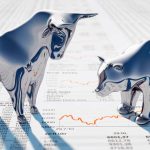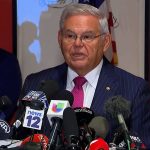Receive free EU-China relations updates
We’ll send you a myFT Daily Digest email rounding up the latest EU-China relations news every morning.
China and the EU have agreed to set up a “mechanism” to discuss export controls, mirroring a similar effort between Beijing and Washington, as the two trading superpowers seek to ease growing trading tensions.
Beijing also agreed to buy more EU agricultural goods and to resolve issues including a backlog of licences for European infant formula makers following complaints about market barriers to its goods and services.
The moves indicated willingness between the two sides to engage after warnings from European officials about relations, with EU trade chief Valdis Dombrovskis saying earlier on Monday that they were in danger of drifting apart over issues such as unbalanced trade and the Ukraine war.
“Both sides will establish a dialogue mechanism in the field of export controls,” said He Lifeng, leader of president Xi Jinping’s economic team, after a meeting with Dombrovskis, who is executive vice-president of the European Commission responsible for trade and economics.
The mechanism would allow “discussions and communication regarding . . . policies and practices”, He said.
The EU-China export control mechanism follows an announcement by the US and Beijing in August that they would set up an “export control enforcement information exchange”.
Beijing has bitterly attacked US-led efforts to limit sales of the most advanced semiconductor equipment to China that have also involved manufacturers in Europe and Japan.
The EU counters that China is also introducing export controls, recently placing restrictions on its shipments of the metals gallium and germanium, which are crucial for semiconductor production.
Both sides said on Monday that they would consider a supply chain “transparency mechanism” for raw materials.
“China is willing to increase imports from the EU and hopes that the EU will remove restrictions on the export of high-tech products to China,” said He.
Dombrovskis said he raised the issue of legal uncertainty related to China’s data laws, which European companies complain are too vague and cumbersome, while He attacked a recent decision by the EU to launch an anti-subsidy probe into Chinese electric vehicle imports.
Known as the China-EU High Level Economic and Trade Dialogue, Dombrovskis’ meeting with He was the culmination of his five-day trip to the world’s second-largest economy.
Earlier on Monday, Dombrovskis told an audience in Beijing that China must change its ways or it would damage investment and trade from the EU.
“We stand at a crossroads. We can choose a path towards mutually beneficial relations,” Dombrovskis said in a speech at Tsinghua university. “Or, we can choose a path that slowly moves us apart. Where the shared benefits we enjoyed in recent decades weaken and fade.”
He noted in the speech that China’s economic success was built on globalisation, with EU consumers buying the goods that pulled hundreds of millions out of poverty.
But the Latvian warned that “both the EU and China face significant political and economic headwinds. And some of these headwinds may cause us to drift apart.”
The strongest headwind was China’s failure to condemn Russia for invading Ukraine. Beijing supports territorial integrity of states “so it’s very difficult for us to understand China’s stance on Russia’s war against Ukraine, as it breaches China’s own fundamental principles”, Dombrovskis said.
He said the anti-subsidy investigation on imports of battery-powered electric vehicles coming from China would be transparent and fair, and could be followed by others if China did not offer a “level playing field”.
Dombrovskis’ stance, and his criticism of the record €396bn trade deficit the EU has with China, has moved Brussels closer to the tougher position of the US.
Read the full article here



